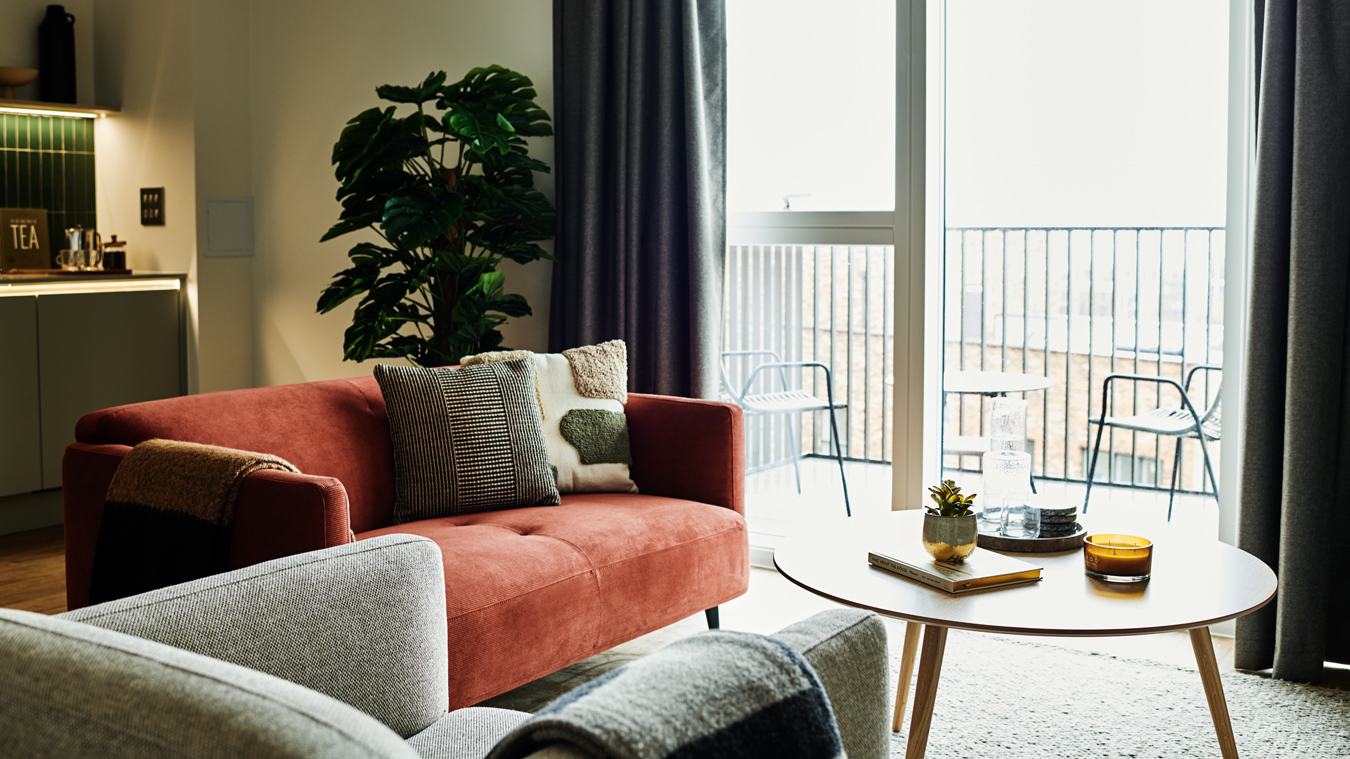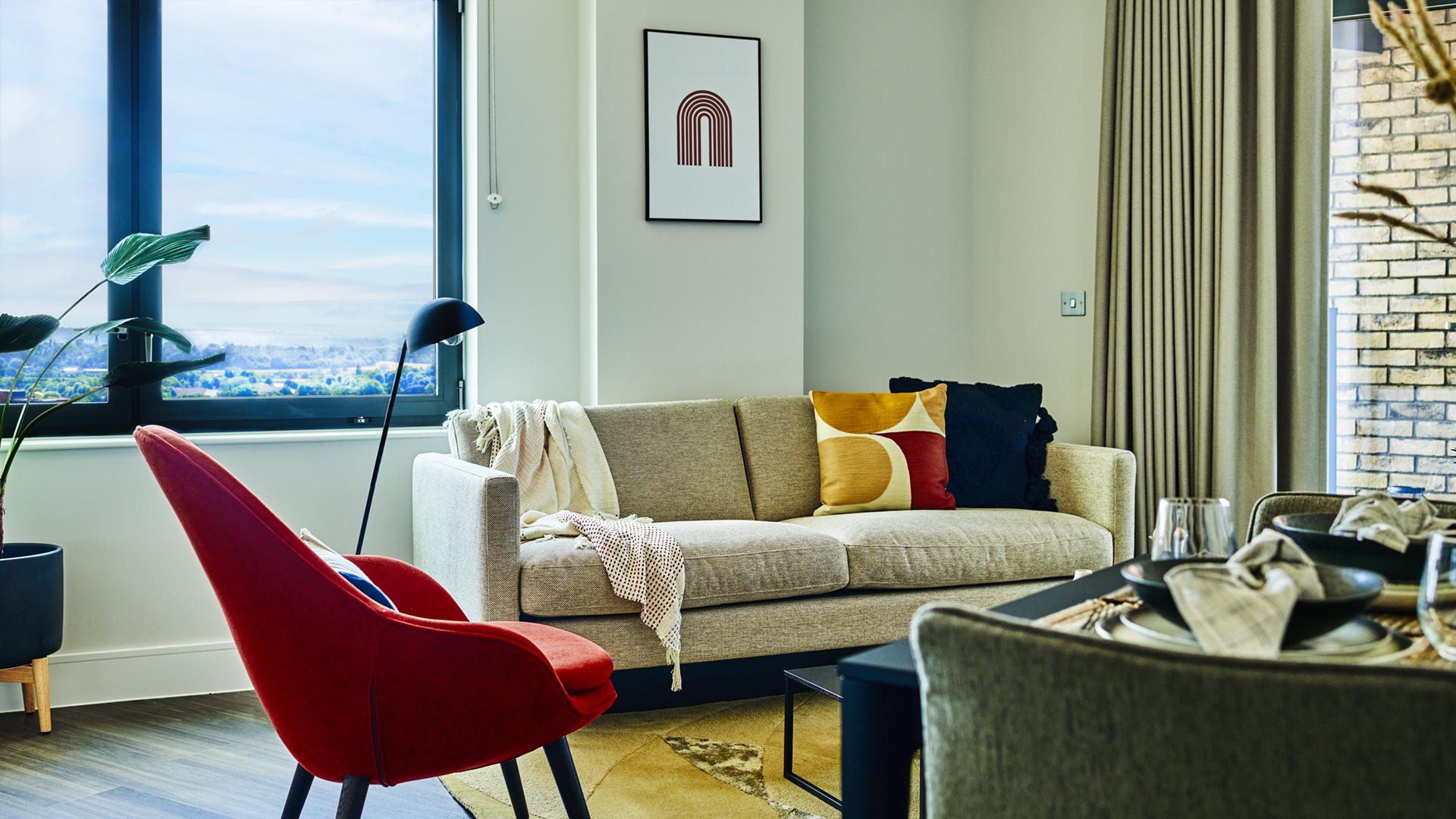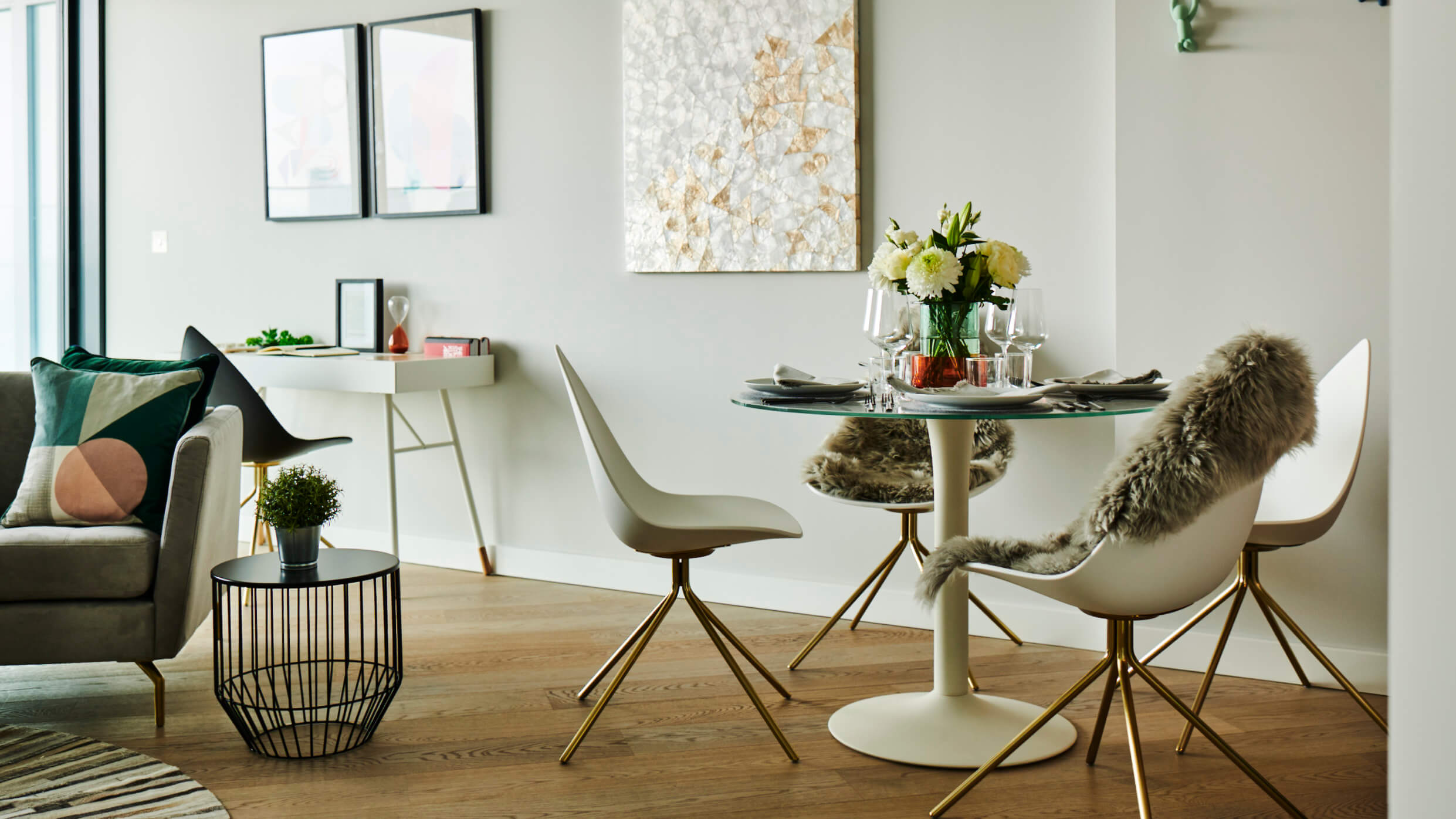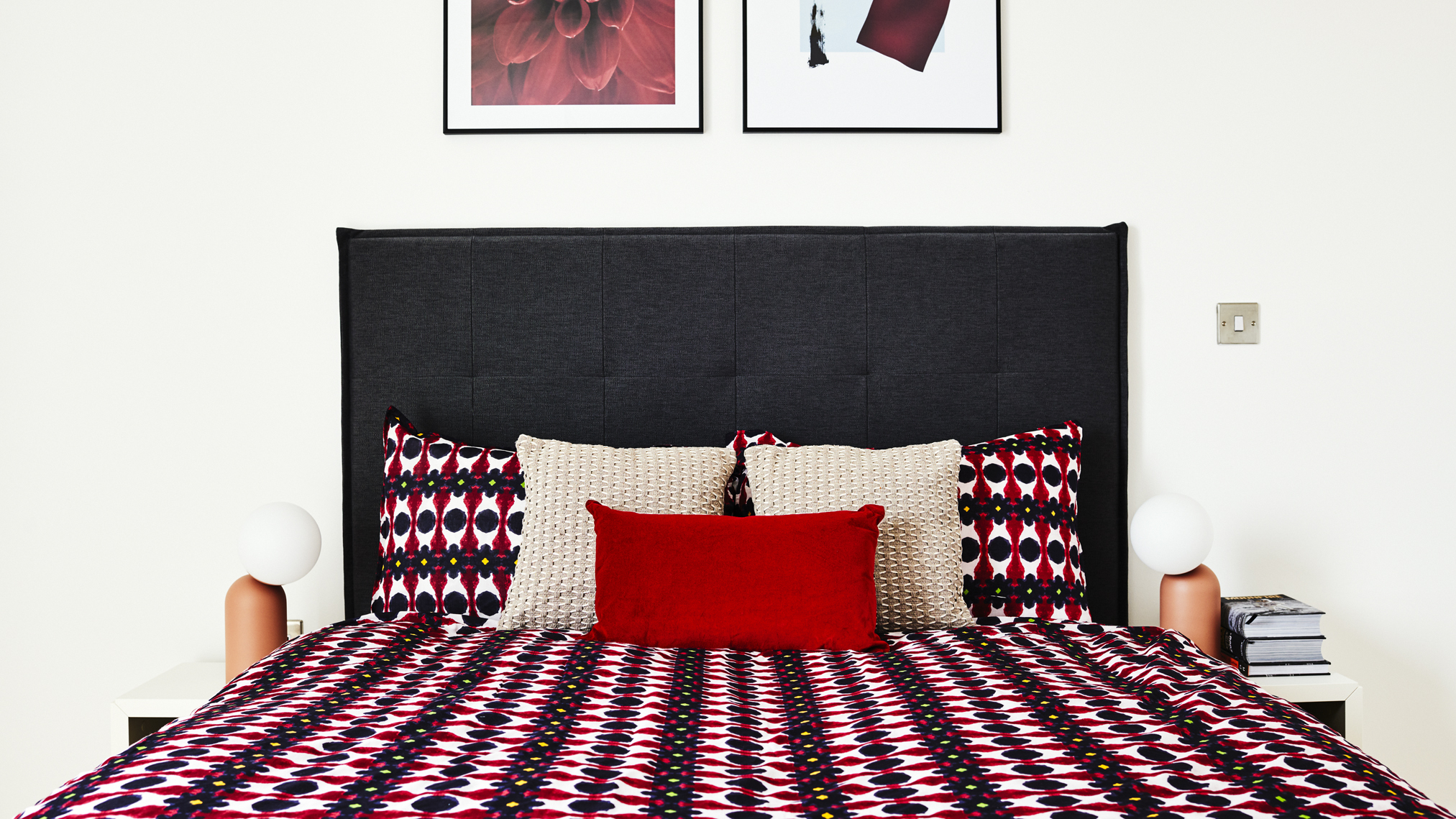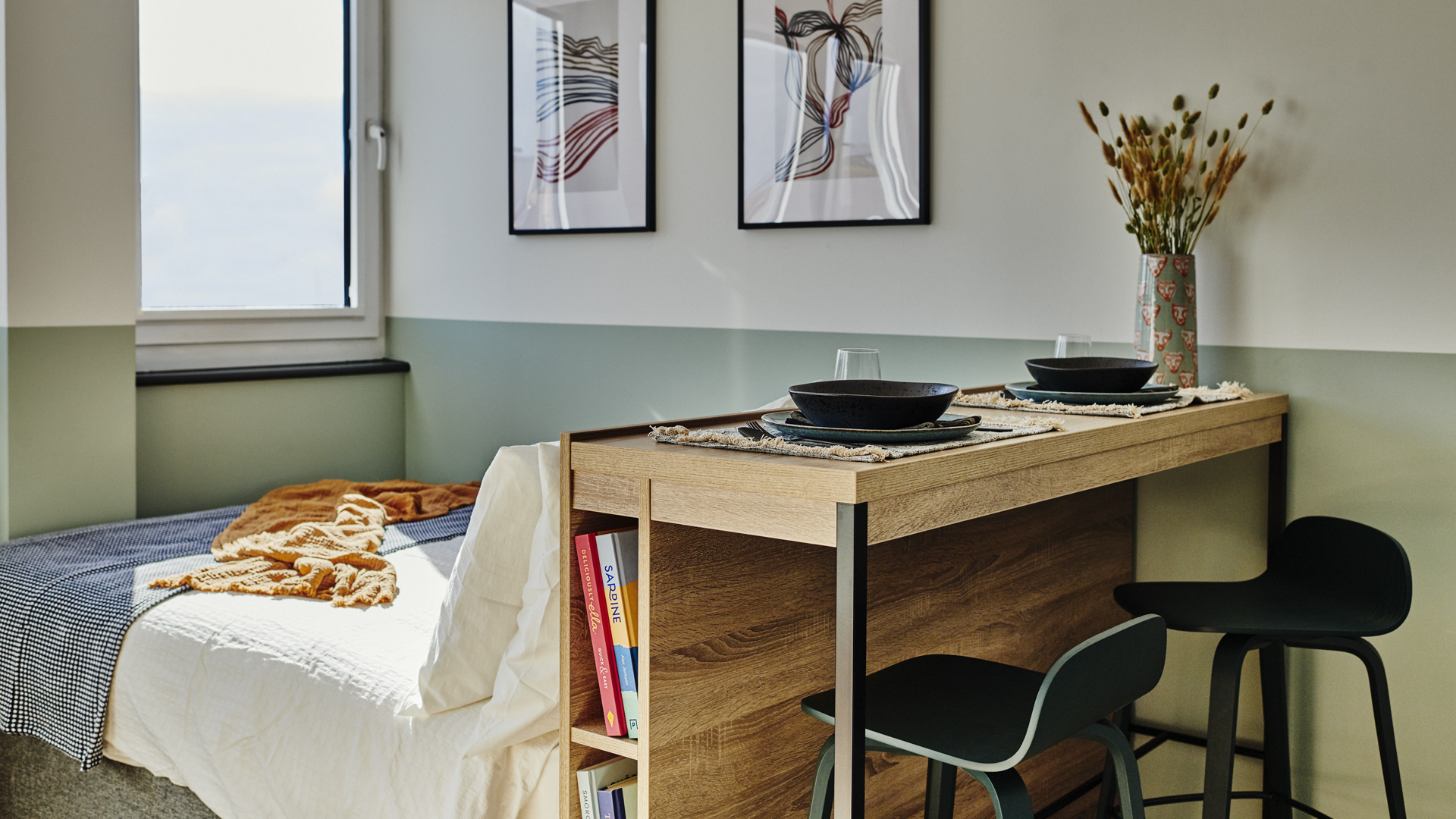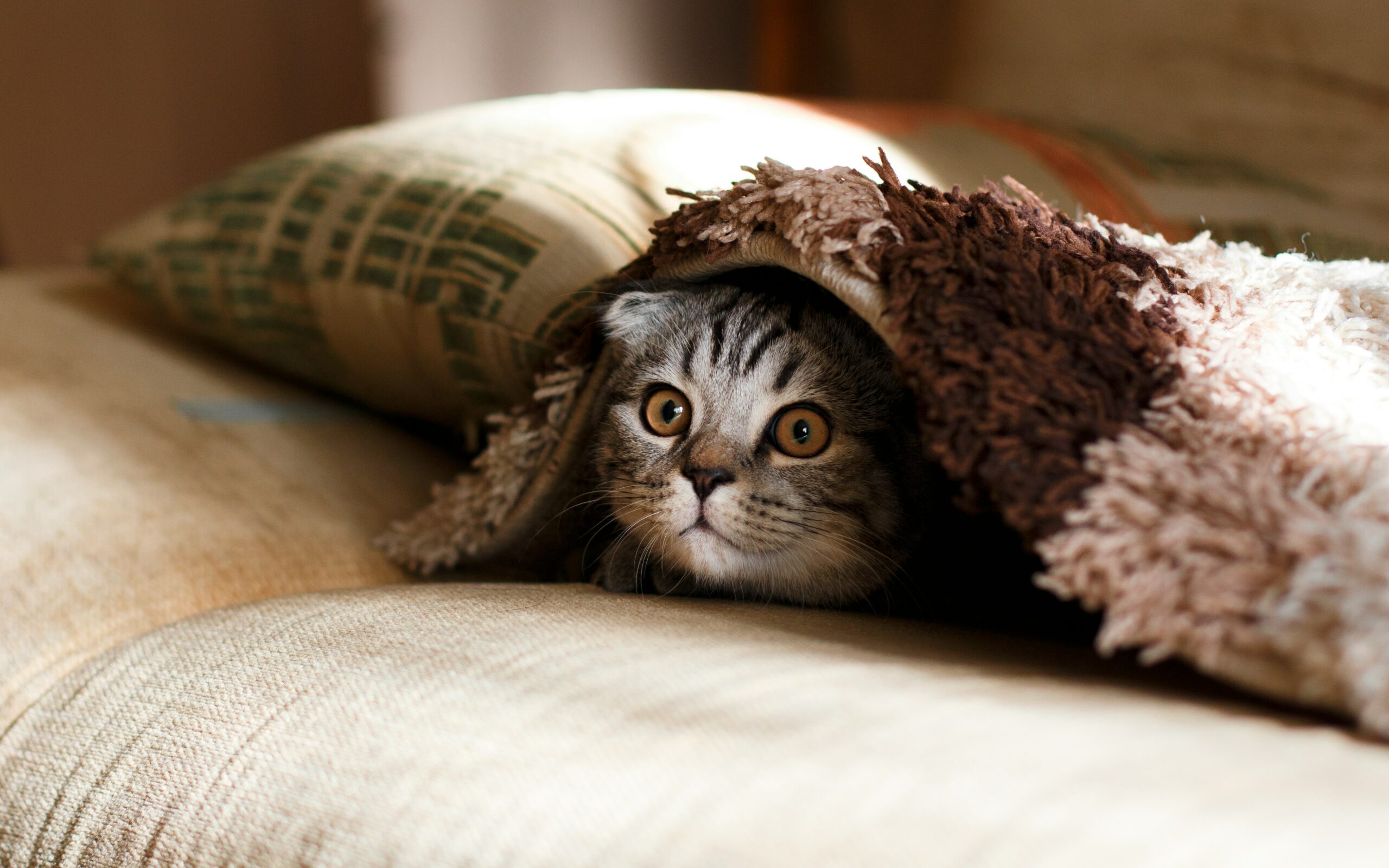
Can You Have a Cat in a Flat?
There are 11 million pet cats in the UK, with over a quarter (26%) of all households being home to a feline friend. Cats may be demanding, selfish and wake you up by sitting on your head at 3am, but we can’t help but love them. An Australian study even found that those who own a cat (or should that be, those who are owned by a cat?) have better psychological health than those who don’t.
The 2021 Census found that more than one in five (21.7%) people live in a flat, maisonette or apartment. So, because we know how popular it is to own a cat, it’s only natural that many of those living in a flat or apartment will want an adorable little kitty of their own.
If this is you, you’ve probably had the question, can I have a cat in a flat in the UK? in your mind for a while. Thankfully, the answer is yes, you can – but there are some things to be aware of before you rush to your local animal shelter and pick out 10 cats who deserve a good home.
In this post, we’re going to explore everything you need to know about owning a cat if you live in a flat, including what happens if you rent, what UK laws say and what to do to make sure your apartment is cat-friendly.
Is it ok to have a cat if you live in a flat?
If you live in a flat but fancy some feline company, you shouldn’t feel bad. Cats thrive in smaller spaces so long as they have a spot to call their own and plenty of things to keep them entertained. Many cats are happy with no access to the outside, but this can depend entirely on your cat. Some cats are desperate to get outside and explore, while others are far happier curled up under a radiator, on your lap, or on a freshly ironed pile of clothes.
Some cats are also recommended to be kept as indoor pets only, for example, cats that are FIV positive. This prevents them from spreading the disease, but also helps them not become ill, as FIV-positive cats are more susceptible to picking up nasty bugs.
That being said, all cats are hugely adaptable and are usually more than happy with a few places to climb and explore, a selection of comfy cushions and beds and some toys to kick the crap out of.
Renting with pets and the law
In the UK, landlords currently have a say over who can and can’t live in one of their properties, with many stating NO PETS on listings and letting agreements. This can be frustrating for pet owners, especially those with well-behaved pets who aren’t likely to chew door frames or pee on carpets.
Even if a property listing does state that pets aren’t allowed, it’s always worth asking. Sometimes, this specifically means ‘dogs’, and it can be possible to appeal to a landlord's good nature (many of them do have one, honest). We’ll cover how to find a pet-friendly landlord in the section below.
However, renters might be in luck. Changes have been proposed that mean pet owners might have a little bit more success finding suitable rental properties in the future. In 2023, the government’s Renters (Reform) Bill was proposed, which means that soon, landlords might not be able to unreasonably block tenants who’d like to bring a pet with them, or welcome a pet into their rental property. It hasn’t been approved yet, but it’s worth keeping in mind if you’re thinking about moving at some point in the future and would like to adopt a four-legged pal.
Unfortunately, at the moment, if a landlord puts their foot down, there’s not much tenants can do until this bill, or a similar one, passes. One alternative pet-owning renters can consider is renting a flat through UNCLE, which is more than happy to welcome tenants with cats, because we understand how important our pets are, and how they can be such a big part of the family.
How to find a pet-friendly landlord
Finding a landlord that’s happy for you to have pets in an apartment or flat can be tough, but it’s not impossible. If you’re a cat owner and you’re on the hunt for somewhere to rent, consider the following to increase your chances of finding a landlord who’s open to allowing animals:
- Make sure you start looking for a new place in plenty of time. Properties that advertise that they’ll consider pets aren’t as common as those dead-set against it, and those that do are often snapped up quickly. Start your search as early as possible.
- Ask for a reference from your current landlord and make sure it specifically references how well-behaved your cat is. Think of it a little bit like a job interview where you’re convincing a landlord that your cat isn’t any trouble and won’t cause thousands of pounds of damage. Part of a landlord’s concerns may also be about you as a responsible pet owner and tenant, so make sure it goes into this as well.
- Ask to talk to the landlord and explain your situation to them. If they meet you, they might be more likely to give you the benefit of the doubt.
- Use a rental company that has a pet-friendly policy, like ours here at UNCLE.
Finding a landlord who’s understanding isn’t the easiest thing in the world, which is frustrating, especially if you already have a pet or you’re desperate to adopt one. But, the last thing you want to do is ignore your rental agreement and do it anyway, which can have terrible consequences, like losing your deposit or being asked to move out.
Things to consider when keeping a cat in a flat
Once you’ve found a landlord who’s happy with you adopting a cat, there are still a few things to consider to make sure it’s the right decision for you. And the cat, of course, who will definitely be the boss.
Keep plenty of toys
Cats are usually more than happy to live in a flat, but only if they have plenty of things to keep them occupied. Cats are naturally playful and inquisitive, so catnip toys, lasers, a cat tree and other types of toys and entertainment will keep them busy. They’ll also tire them out and make them less likely to try to escape.
Choose a breed suited for flats
Some cat breeds are better suited for smaller spaces and no access to outside. For example, Norwegian forest cats and Bengals love being outside to explore and hunt. Younger cats and cats that haven’t yet been neutered are also more likely to look for ways to escape and have some fun (if you know what we mean).
But, some cat breeds are perfect for flats, such as British shorthair, ragdolls and Maine coons.
Don’t leave food out all the time
Because indoor cats get less exercise, you shouldn’t leave food out for them all the time. Cat expert Jackson Galaxy says that cats should eat small meals throughout the day, and that leaving food out for them all the time can impact their behaviour and cause them to become overweight.
Set a routine, where you feed your cat at certain times during the day. If you’re out, you could consider an automatic feeder. Not to mention leaving food out all the time can lead to a lingering smell, which you probably wouldn’t want to live in anyway.
Keep it hygienic
Cats are naturally clean animals, but that doesn’t mean you don’t need to keep on top of their hygiene – which can affect your own hygiene, too.
Regularly clean out litter trays and make sure you take out any pee and poo as soon as you can. Not only does this promote healthy toilet behaviour (because, like us, cats don’t like to do their business where it’s dirty) but it stops your flat from getting a little stinky.
Keep on top of cutting your cat’s claws (which also helps protect your furniture and carpet) and clean their ears with cat-friendly wipes if they get dirty. There are also treats available to protect their teeth and give them a healthy coat, and treats that break down hairballs.
Consider your neighbours
Cats are generally not as noisy as dogs, but some can be vocal. If your cat is known to practice singing show tunes during the early hours, or it produces particularly pungent poops, there are things you can do so it doesn’t affect your neighbours. For example, keep your cat entertained to prevent boredom and consider a self-cleaning litter tray.
Consider getting cat grass
If your cat doesn’t have access to the outside, consider growing cat grass so it can still have access to it as and when it’s needed. Cat grass is basically salad for cats, so it’s part snack and part digestive aid. It’s also pretty cheap!
Renting UNCLE’s pet-friendly flats
If you have a cat, or you’re considering adopting one, and you’re not sure about how to find a pet-friendly landlord, why not consider renting with UNCLE? We have a selection of fully-serviced, pet-friendly flats in London and Manchester, so you don’t have to worry about what to do with your furry friend. For more information, contact us today.

Our Guide to 10 Great Restaurants in New Cross

Our Guide to 8 Great Restaurants in Stockwell






